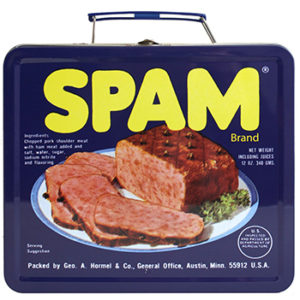 Considering the importance placed on email as a communication tool, it never ceases to amaze me that I still receive poorly worded, unprofessional, unbranded emails. All business owners should know: every email sent out by your company is a representation of your brand. Bad email practices by business owners and team members alike are detrimental to brand integrity and therefore, business success. Email’s a big deal!
Considering the importance placed on email as a communication tool, it never ceases to amaze me that I still receive poorly worded, unprofessional, unbranded emails. All business owners should know: every email sent out by your company is a representation of your brand. Bad email practices by business owners and team members alike are detrimental to brand integrity and therefore, business success. Email’s a big deal!
I received the following email from someone looking to help me with my online marketing. What do you think? If you received this exact email, would YOU go out of your way to contact John Smith*? (*Name and information changed to protect the guilty.)
Subject line: Best Content Writing Services !!
To: nora@ndrichardson.com
From: SEOJohnSmith@gmail.com
Dear Web Owner,
I am John Smith.
We are an Online Marketing firm with over 4 years experience in the domain. Content in any Online Marketing Campaign is one of the most crucial factors to make the campaign a success. However, in most cases the content is not good either in terms of user perspective or in terms of search engines. Allow me to offer you our Web Copywriting Services. We work hard to deliver a hassle free and time bound copywriting service to our clients so that they don’t have to wait forever for a content piece. Do let me know if your views are in line with mine and you are facing such a situation with your current service provider. I look forward to your response….
Kind Regards,
John Smith
While most businesses aren’t quite this bad, this is, in fact, a real email from a company looking to attract more customers. (Much to my surprise.) I would normally just stop there and delete this correspondence because it appears suspicious.
But we can learn a lot from John Smith’s mistakes.
Let’s dissect John Smith’s email…
1. The Greeting
“Dear Web Owner”…? Really? How less personal can you get? It’s obvious this person doesn’t know me at all, nor did they take the time to research my business. This greeting isn’t accurate for a multitude of reasons, the least of which is that “Web Owner” doesn’t make any sense. I’m not the owner of the Web. So now I’m thinking John Smith doesn’t have a good grasp of the English language and/or doesn’t bother to proofread. (Um. If you want to write web copy for me, then both of these characteristics are a must.)
The Lesson: Always take the time to get the exact name and the correct title of the person you are addressing. Do your homework and get to know both the organization and your contact’s role within it before making contact.
2. The Body
There’s no personalization. This email does nothing to address my needs, my company’s needs, or my website’s needs. It is all about John Smith’s business—and the rest is fluff. There is not one reference to my company or what we do. I do not feel they are genuinely trying to help me. At this point, I feel like this is spam (and really, it is).
The Lesson: Never send out an email that doesn’t address your potential customer’s pain points. Get to know the business. Explain why you’re reaching out and how you can help. Reference one or two very specific reasons for making contact. (In this case, John Smith could’ve mentioned a particular blog post—talk about brownie points!)
3. The Close
This email wasn’t branded in any way and there was no link to a company web address. How am I supposed to know if they are indeed a reputable company that is in line with my values? Other than the generic Gmail address, there is no other way to contact this person. Even if John Smith is a freelancer, there’s really no excuse for a lack of evidence that you run a legitimate business.
The Lesson: Include your contact information and your web address. Brand your communications so your emails are memorable and recognizable. (Even if your business is very new and you’re just starting out, nowadays there’s really no excuse for not setting up a simple website.) You want to exude confidence in your business and your brand, not keep it a secret.
4. The Irony
John Smith has a major disconnect between his services and his brand. They claim to be an “Online Marketing company” of four years—yet, they’re not promoting their business anywhere within the email. How can you help me with my business marketing if you can’t be bothered with branding or effective marketing for your own company?
The Lesson: The personality and approach behind your email communications should always be consistent and should always reflect your ability to do your job.
Above all, be sure your branded look and feel is consistent across all your platforms and communications. When contacting another professional via email, you can use your language and your brand personality to give them good idea right off the bat as to whether or not your business might be the right fit. Email is yet another distinct area in which to showcase your brand and your business—and build your reputation for success!
Do you have an example of a poorly executed promotional email? If so, comment below.
